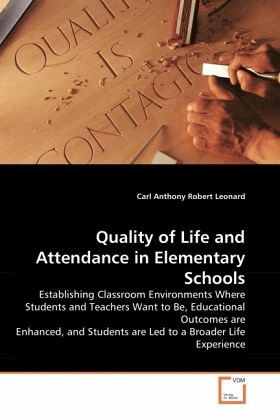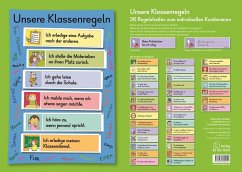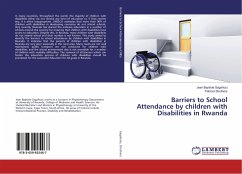
Quality of Life and Attendance in Elementary Schools
Establishing Classroom Environments Where Students and Teachers Want to Be, Educational Outcomes are Enhanced, and Students are Led to a Broader Life Experience
Versandkostenfrei!
Versandfertig in 6-10 Tagen
52,99 €
inkl. MwSt.

PAYBACK Punkte
26 °P sammeln!
Dr. Carl Leonard assesses the impact of a stress management, a self-development and a relaxation technique on the quality of school life and attendance of 448 elementary school students in New South Wales, Australia. The importance of contextualising student quality of school life as a key indicator of school effectiveness and measure of school improvement, is identified.Overall, the interventions implemented appeared to have had some small impact on student quality of school life and absence; and, teacher stress, satisfaction and absence. Of particular interest were the differential effects o...
Dr. Carl Leonard assesses the impact of a stress management, a self-development and a relaxation technique on the quality of school life and attendance of 448 elementary school students in New South Wales, Australia. The importance of contextualising student quality of school life as a key indicator of school effectiveness and measure of school improvement, is identified.Overall, the interventions implemented appeared to have had some small impact on student quality of school life and absence; and, teacher stress, satisfaction and absence. Of particular interest were the differential effects of the interventions for: teachers and students, classes, schools, and, at least in part, the effectiveness of the implementation of the interventions. Possible explanations and implications of these differences are discussed including the importance of positive peer relationships and an exciting and enjoyable curriculum in ensuring students have a high quality of school life are described.Dr. Carl Leonard advocates the establishment of classroom environments where students and teachers want to be, educational outcomes are enhanced, and students are led to a broader life experience.












